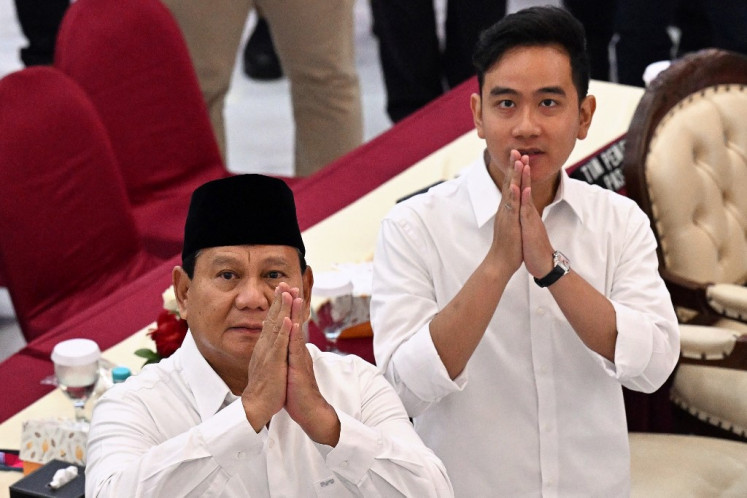House readies draconian rule on blasphemy in KUHP
Human rights and religious freedom activists have long called for the scrapping of an article on blasphemy in the Criminal Code (KUHP) that many have deemed as draconian and prone to abuse, given that it has been used to bring criminal charges against those of minority faiths
Change Size

H
uman rights and religious freedom activists have long called for the scrapping of an article on blasphemy in the Criminal Code (KUHP) that many have deemed as draconian and prone to abuse, given that it has been used to bring criminal charges against those of minority faiths.
The concerns, however, have not only been ignored, but the government and the House of Representatives have in fact doubled down on their efforts to criminalize blasphemy. In an amendment to the KUHP, the government and the House have agreed to expand the definition of blasphemy and impose harsher punishments against offenders.
Discussion on the draft revision to the 1946 Criminal Code has entered its final phase and changes are set to be passed into law next month.
The latest draft bill, a copy of which was obtained by The Jakarta Post, included six articles defining what constitute crimes against religion as well as crimes against religious life and houses of worship.
In comparison, the KUHP currently has only one provision on blasphemy: Article 156a, which was added as mandated by the 1965 Blasphemy Law and carried a maximum punishment of five years’ imprisonment.
All political factions at the House have agreed to expand the provisions on blasphemy in articles 348 to 353 of the bill, which is currently being deliberated by the House working committee (Panja).
Panja member Taufiqulhadi from the NasDem Party said the expanded definition on blasphemy was aimed at maintaining social order and inter-religious harmony, as well as protecting all religions.
“Religion is regarded as the most sensitive issue in Indonesia. People can’t insult religion as they like because it could lead to chaos and disorder within society,” Taufiqulhadi said on Monday.
Article 348 of the draft bill stipulates that any person found guilty of insulting a religion in public can be sentenced to two years in prison.
Article 349 further stipulates that any individual who broadcasts, shows or displays a text or picture or plays a recording that is categorized as a crime under Article 348, including a person who disseminates such content through IT-based media, can be sentenced to five years in prison.
“For example, those who openly insult the Prophet or damage the holy scripture of certain religions as witnessed by the public can be charged for criminal offenses,” Taufiqulhadi said.
Rights groups have recently stepped up efforts in their campaign to repeal the blasphemy provision in the KUHP as well as the 1965 Blasphemy Law, saying that they have been abused to prosecute members of minority groups.
The call was renewed after former Jakarta governor Basuki “Ahok” Tjahaja Purnama, a Christian of Chinese descent, was found guilty of blasphemy and sentenced to two years’ imprisonment in May last year, a decision many have called a “setback” for the country’s democracy.
Gerindra Party politician Muhammad Syafi’i said new provisions on blasphemy could prevent sectarian tension, which thus far had not effectively been dealt with under prevailing articles in the KUHP.
Junimart Girsang, a Panja member from the Indonesian Democratic Party of Struggle (PDI-P), said a new provision could in fact be used to charge religious leaders accused of insulting other faiths.
Junimart said firebrand clerics could be charged under Article 352, which stipulates that any person who publicly insults those carrying out or leading a worship service can be punished by up to two years’ imprisonment.
“There are some people who claim to be a religious leader, but their words are in fact provocative, which causes tension,” Junimart said.
Activists, however, criticize the expansion of blasphemy provisions, arguing the articles would give intolerant groups more opportunities to pressurize minority groups.









